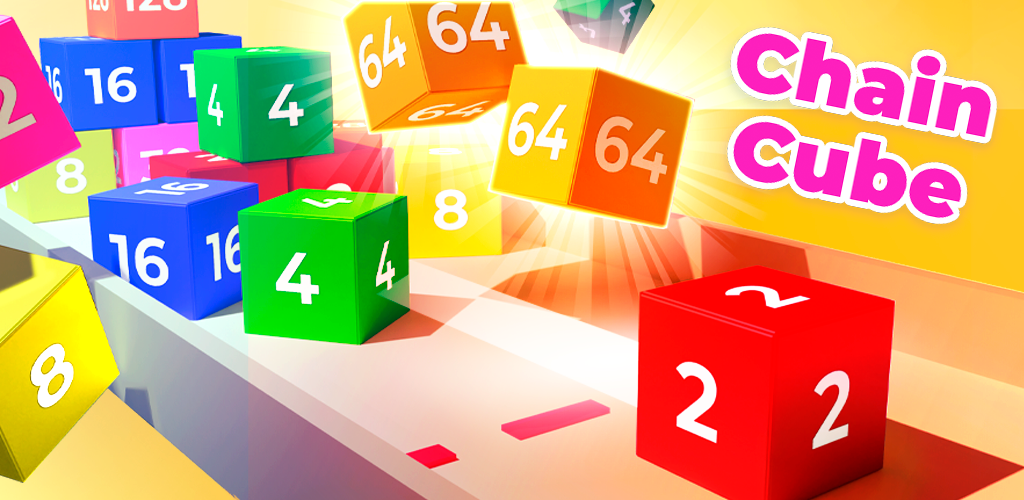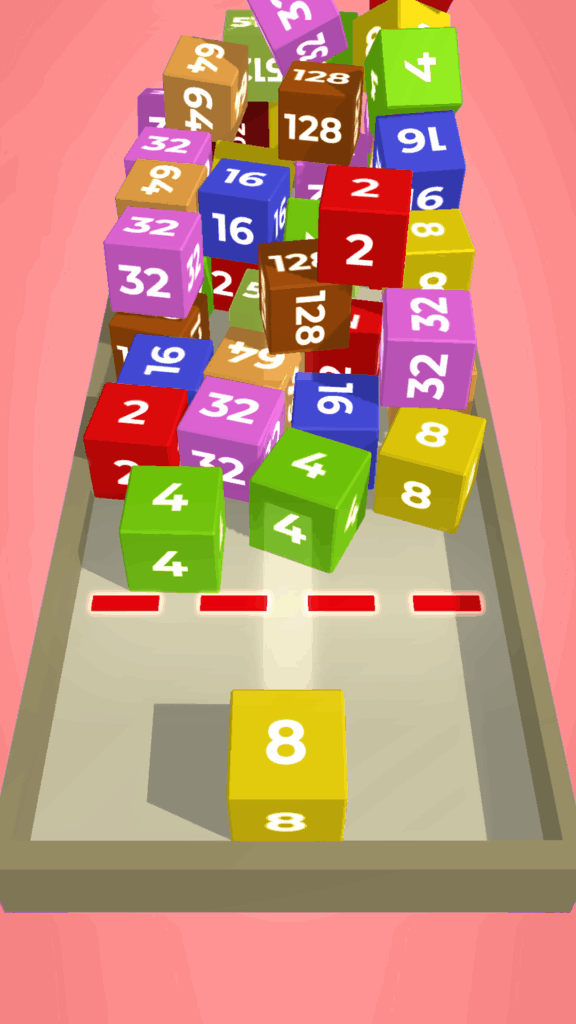Popular Now
Chain Cube 2048 3D Merge Game, developed by CASUAL AZUR GAMES, presents itself as an innovative twist on the classic 2048 puzzle genre. By introducing 3D physics and chain reactions, it aims to captivate players with its dynamic gameplay. However, beneath its colorful exterior lies a series of design choices that may not be immediately apparent but significantly impact the player's experience. This article delves deep into the game's mechanics, focusing on the progression system, ad monetization strategy, and the psychological tactics employed to maintain player engagement.
The Allure of 2048 in 3D
At its core, Chain Cube 2048 offers a familiar gameplay loop: merge identical cubes to create higher-value blocks. The introduction of 3D physics adds an element of unpredictability, as cubes bounce and settle in unexpected ways. This dynamic environment enhances the traditional 2048 experience, making it more engaging and visually appealing.
The 3D design also introduces spatial strategy—players must carefully consider where to throw cubes to ensure the optimal merging path. While visually pleasing, it adds complexity and at times randomness that frustrates traditional puzzle fans.
The Illusion of Progression
While the game's mechanics are straightforward, the progression system is designed to keep players engaged without offering substantial rewards. Achieving high-value cubes like 2048 or 32,768 provides a sense of accomplishment, but these milestones are often followed by a plateau. Players may find themselves stuck at certain levels, unable to progress further despite their efforts.
This design creates an illusion of progress. Instead of clear advancement, players are nudged into a loop where rewards diminish, and the only real progress is cosmetic or statistical rather than functional.
Ad Monetization: A Double-Edged Sword
One of the most prominent features of Chain Cube 2048 is its ad monetization strategy. While ads are a common way for free-to-play games to generate revenue, the frequency and placement of ads in this game can be overwhelming. Players often encounter ads after every significant action, such as merging cubes or achieving a high score.
This creates a jarring experience that can lead to disengagement. In-game advertisements are not only frequent but also occasionally deceptive, showing fake X buttons or redirecting users to download other apps unintentionally.
The Paywall Paradox
To alleviate the ad burden, the game offers a paid version that promises an ad-free experience. However, many players have reported that even after purchasing the ad-free version, they continue to encounter ads. This discrepancy between the advertised benefits and the actual experience raises questions about the game's monetization ethics.
Not fulfilling the promise of ad removal can damage trust and reflects poorly on the developer’s intentions. If a player pays for a product, they expect the full benefit—anything less feels like a scam.
Psychological Manipulation: The Skin Gamble
Chain Cube 2048 employs a psychological tactic known as the "skin gamble" to keep players invested. By offering virtual skins and rewards that can be unlocked through gameplay, the game taps into the player's desire for collection and customization.
However, many players report that these rewards are difficult to obtain and often require significant time investment or monetary expenditure. This tactic exploits the “sunk cost fallacy,” where players continue to engage because they’ve already spent time or money, even if the experience becomes less enjoyable.
Common Skin Tactics
-
Randomized rewards that imitate loot boxes
-
High-level skins locked behind time-gated objectives
-
Offers that disappear unless quickly acted upon
The Illusion of Competition
The game features a leaderboard that ranks players based on their highest cube achieved. While this fosters a sense of competition, many users have noted discrepancies in the rankings. For instance, players who have reached high milestones find themselves ranked far below others with seemingly unattainable scores.
This inconsistency undermines the credibility of the leaderboard and questions the fairness of the ranking system. It gives the impression that bots or manipulated scores are present, creating a fake competitive environment.
Data Privacy Concerns
In addition to gameplay issues, Chain Cube 2048 has been associated with data privacy concerns. Some users have reported that the game redirects them to suspicious websites or prompts them to enter personal information under the guise of winning prizes.
These issues raise alarms about how the game handles user data. Apps should be transparent about data usage and should never lure users into scams disguised as reward systems.
The Impact on Player Experience
The combination of these factors—the illusion of progression, intrusive ads, misleading monetization promises, psychological manipulation, questionable competition systems, and data privacy concerns—can significantly impact the player's overall experience.
What begins as an engaging and fun puzzle game can quickly devolve into a frustrating and exploitative experience. Players may feel trapped in a cycle of endless play without meaningful rewards, leading to eventual disengagement and harm to the game’s reputation.
Recommendations for Improvement
To improve Chain Cube 2048, the developers should consider:
Transparent Progression
-
Define clear and achievable milestones
-
Offer tangible in-game benefits with each milestone
Ethical Monetization
-
Significantly reduce ad frequency
-
Ensure the ad-free version removes all ads as promised
Fair Reward System
-
Allow meaningful skins to be earned through skill, not spending
-
Remove gambling elements from cosmetic unlocks
Credible Leaderboards
-
Use real-time, verified scores
-
Clearly explain how rankings work
Respect User Privacy
-
Never request sensitive data through popups
-
Avoid redirecting to external pages without user consent
These changes could drastically improve player trust and long-term retention.
Conclusion
Chain Cube 2048 3D Merge Game is a cleverly designed evolution of the 2048 genre. However, its core mechanics are overshadowed by aggressive monetization, misleading ad practices, psychological manipulation, and privacy concerns. If the developers aim to build a lasting and respected product, they must refocus on transparent design, ethical monetization, and genuine engagement strategies.
For puzzle fans and casual gamers alike, Chain Cube 2048 offers fun—but at a potential cost of trust, time, and user satisfaction.


















